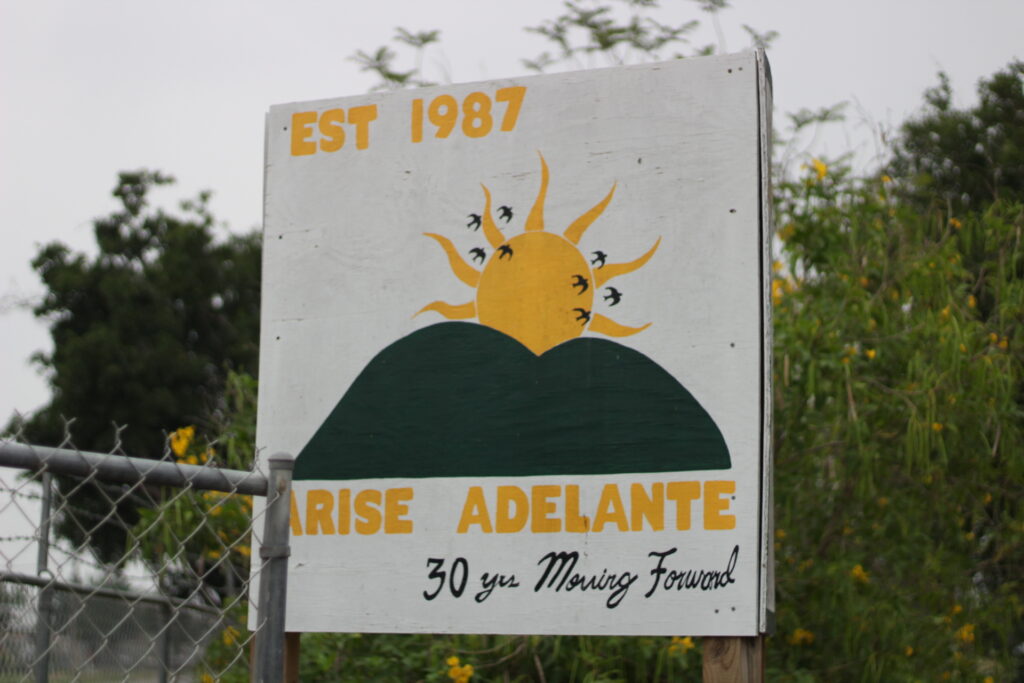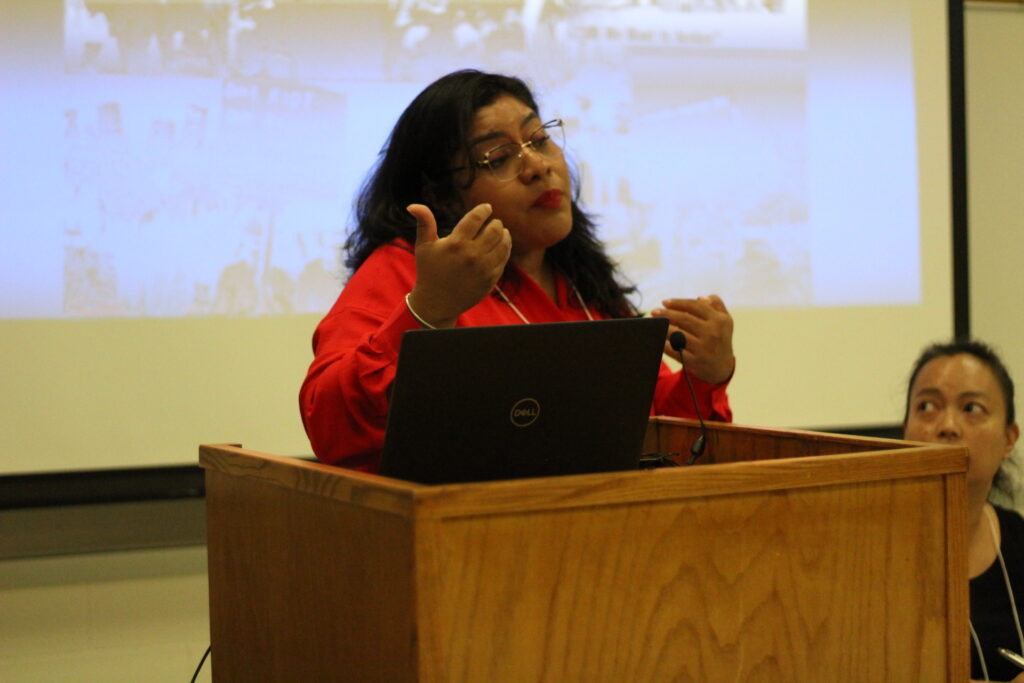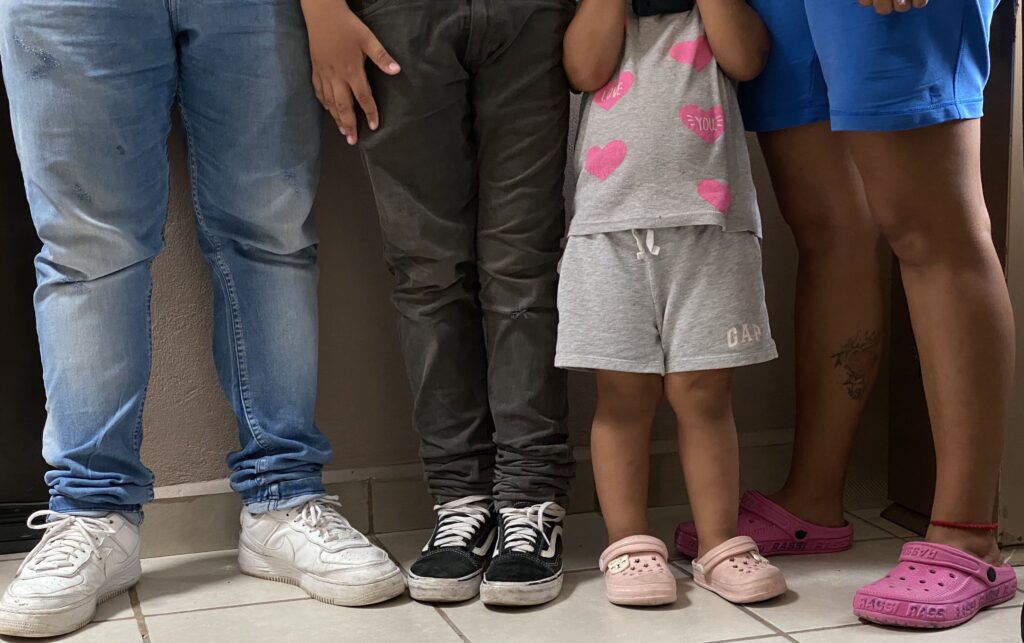Reader's Note: This piece was written by staff at Hispanics in Philanthropy. You can view the original post here.
"I don't have 5-year goals, I have 500-year goals of liberation," declared Rubén Garza of Voces Unidas. He didn't hold back in a room full of funders and community leaders from the Rio Grande Valley.
Rubén set the tone for 15 funders who traveled from across the United States and Mexico to join a learning trip to the Rio Grande Valley (RGV) and Reynosa, Mexico. Hosted by Grantmakers Concerned with Immigrants and Refugees (GCIR) and Hispanics in Philanthropy, the experience aimed to amplify the voices of border communities, demonstrate the impacts of unjust immigration policies, and mobilize resources for migrant-serving groups.
GCIR Vice President of Programs, Ivy O. Suriyopas stated, "The visit amplified the incredible work of groups serving both people on the move and families who have chosen to live in the Rio Grande Valley. Funders learned from movement leaders who highlighted a community that is not lifted up in the media."
“There was an urgent need for us to create spaces to exchange ideas and first-hand accounts of what people on the move are experiencing,” shared Andrea Villaseñor de la Vega, Director of Migration and Climate Mobility at Hispanics in Philanthropy. “Our network has voiced how critical the situation is… how organizations have been at capacity for quite some time. We want to increase commitments beyond those who attended.”
Meeting with Local Grassroots Organizations in the Rio Grande Valley
Eager to find refuge from the blazing temperatures rising over 100°F, the group met with courageous leaders from both McAllen, Texas and Reynosa, Tamaulipas. A beautiful sign of a drawn mountain, birds, and a shiny yellow sun signaled the arrival to the ARISE Adelante (A Resource In Serving Equality moving forward) community center, which provides personal development programs for immigrant families living in the Colonias in McAllen.

Ramona Casas, Social Justice Coordinator and co-founder of ARISE, and Josue Ramírez, co-founder and managing director of Trucha, a grassroots multimedia platform uplifting the culture and social movements of migrant and queer communities in the RGV, welcomed the group with a brief history of their region.
As a part of the learning journey, HIP and GCIR included a tour of the border wall past some of the Colonias – neighborhoods sprinkled across the RGV known for their weak or nonexistent infrastructure, lack of basic services, and extreme poverty.
During this tour, Ramona Casas was eager to share her story, ARISE, and their work with the community of RGV. She remembered fondly how at just 23 years old, she co-founded the organization. They identified a big need for people to have English classes, so with the support and guidance from Sister Gerrie Naughton, of the Sisters of Mercy religious order, they arranged for English-speaking neighbors to teach those who did not. Throughout the day, everyone heard from LUPE (La Unión del Pueblo Entero) about their comprehensive services for migrants and Proyecto Azteca's affordable housing efforts.

The South Texas Equality Project and Sidewalk School shared their efforts to create safe spaces for LGBTIQ+ youth, provide education for children in Matamoros, and empower, advocate, and influence policy for people on the move.
Members of Border Workers United explained how they achieve workplace justice, alongside Voces Unidas who detailed their strategies to promote holistic healing through art and storytelling, and Frontera Fund's experiences with advocacy for reproductive rights across the region.
As the conversation continued on the second day, the mood shifted. Funders demonstrated a drive to boost their philanthropic initiatives, and the urgency to drive transformative change became tangible.
Sister Norma Pimentel, who leads Catholic Charities of the Rio Grande Valley, kicked off the day by explaining their efforts to receive and care for migrants released by Border Patrol.
The group then heard from the Young Center, which advocates for unaccompanied migrant children, and from leaders of the Texas Civil Rights Project who revealed their strategies for multi-faceted legal advocacy to protect people on the move.
Preparing for a Shelter Visit in Reynosa
Sisters María del Carmen Ramírez and María Tello from Casa del Migrante Reynosa, and Bertha Domínguez from Casa Migrante Matamoros, prepared the group before the visit with accounts of the overcrowded conditions, lack of food and water, and the challenging circumstances faced by migrants. At the shelter, Luis, a 21-year-old man from Ecuador, shared his dream of making it to Miami and his gratitude for a safe place to await his humanitarian parole interview after seven grueling months. The group also met Josué, Stefanía, André, and Ashley, a resilient family who endured significant adversity - kidnapping, extortion, and threats - in their journey fleeing Venezuela.

The border visit provided a profound look at the human impact behind migration policies and increasingly heated political rhetoric. It is a firm call to action for philanthropy to listen, learn, and invest more resources in this region's migrant-serving organizations and front-line leaders.
A Wakeup Call for Philanthropy
Organizations along the RGV border have been advocating for the needs of people across the region for a long time. They are confident in their relationships, and the trust they’ve built with the community, and understand exactly where and how resources should be used. That’s why they repeat to funders who visit, “Do not tell us how to use the resources, we know how to do it for ourselves, sometimes we just need a little bit of help.” This sentiment was shared by several organizations during the trip and captures the frustration many grassroots organizers feel with funders' short-term priorities and shifting goalposts.
In a state as vast as Texas, these efforts require resources on a massive scale with a true commitment to multi-generational investment, not empty change-making rhetoric.
The 500-year path to dismantling oppressive systems requires rejecting xenophobic ephemeral whims in favor of providing grassroots leaders the sustainable funding to do what they know is needed.
For more highlights and takeaways from the visit, please join GCIR and HIP for our webinar Beyond Borders: Reflections from the Border for Funders and Allies on June 5, 12-1 pm ET.